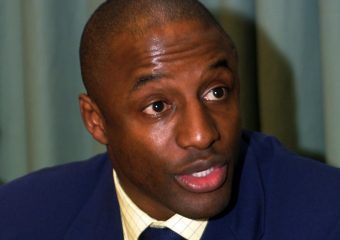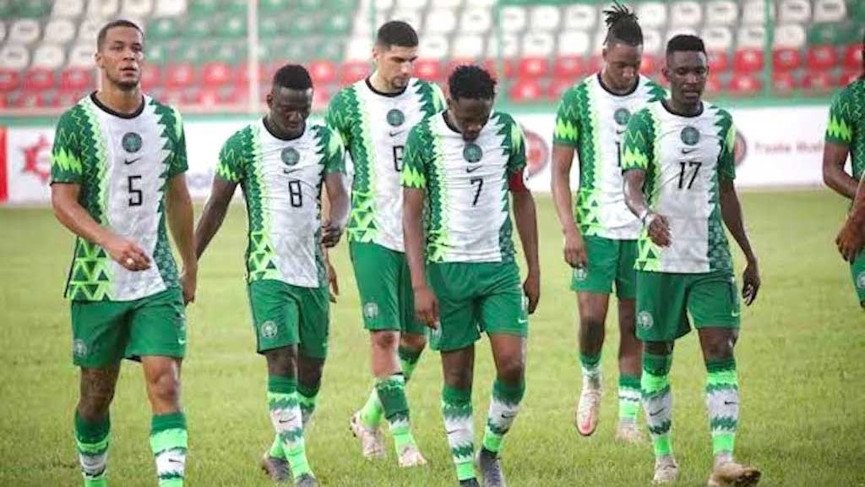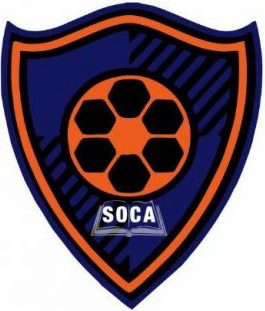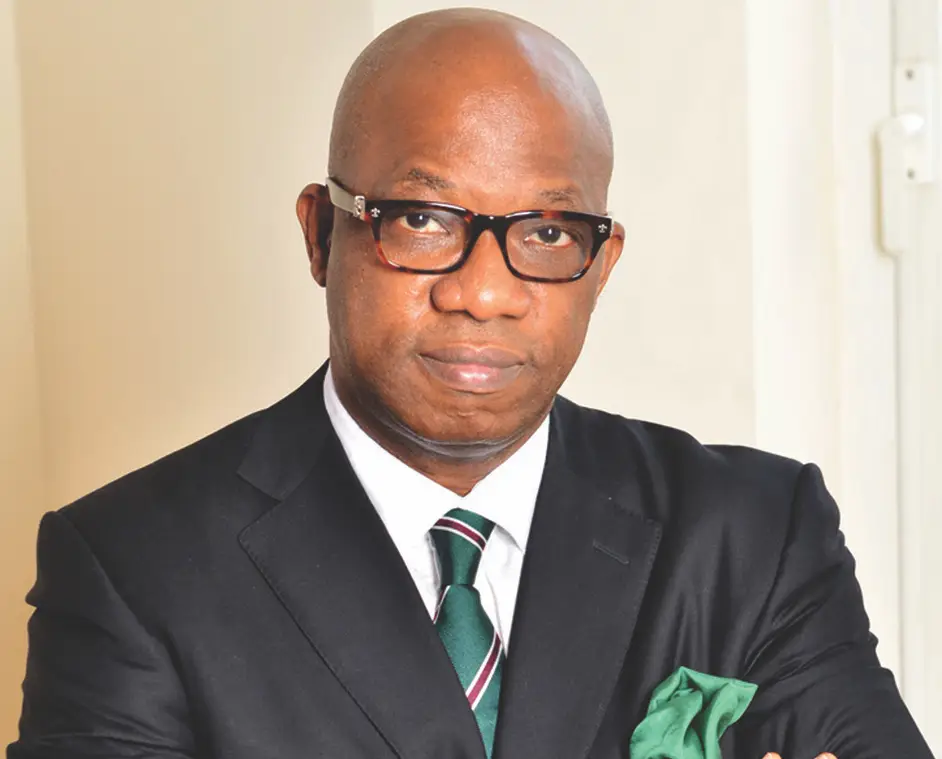Sports Ambassador, John Fashanu, has surely run into the stormy waters of Nigerian football with recent reports of an allegation purportedly made by him on a radio program in Lagos.
I have not even tried to verify it because I do not want to find out that he could possibly have made the statements credited to him about a man I knew very well, and who is no longer in a position to respond and give his own side of a story that, I believe, never existed in the first place.
Professor Otto Gloria died in 1986, almost 5 years after quitting his job as manager of the national team of Nigeria. He was a global figure giving the stretch, like that of a limousine car, of his coaching career across continents in some of the top clubs in Europe and South America, including Benfica, Porto and Sporting Lisbon in Portugal, Marseille in France, Athletico Madrid in Spain, Vasco Da Gama, Gremio and Santos in Brazil amongst others, plus, particularly, his time with the national team of Portugal that included the legendary Eusebio that captained the team to the 1966 World Cup in England.
When he took up the assignment to coach the Green Eagles of Nigeria Otto Gloria was the President of the Brazil Coaches Association, one of the most respected positions in Brazilian football. He was not an ordinary coach. His knowledge and experiences of football were those of a true ‘professor’ that he was – a teacher of football in a university!
Unfortunately, with the nomadic life of coaching around the world, he never learnt to speak a word of the English language. He never even tried to speak the language throughout the two years that he worked in Nigeria.
That surely must set the stage for whatever conversation he must have had with an English football player whilst negotiating a million Pounds bribe in order to be invited to the national team of an African country whose collective worth of the entire squad of heroes, exceptionally gifted players and African Superstars was only worth a fraction of that unimaginable figure.
A million Pounds in 1981 are the equivalent of a billion Naira today. What would make a player to pay that stupendous sum in order to be invited into a team that is not in the top echelon of global football? Or for a coach to demand such from a relatively unknown player? Is it that the player was so good, or so bad, that it needed a bribe to invite him? It does not make sense either way. How would the discussions have gone with Otto Gloria’s reputation and pedigree in football, and his inability to even communicate in English. Or does the other party speak Portuguese?
In the case of Professor Otto Gloria the situation would have needed an interpreter, a translator, at the time to mediate and broker the deal between the English-speaking footballer and the Portuguese-speaking manager. What a scene that would have being? that would have been a recipe for a perfect scandal any way the negotiations went, particularly where it did not materialize. in 35 years since Otto Gloria left the shores of Nigeria, until now there has not been a whimper of an untoward behavior, or conduct, against the respected coach from anyone.
John Fashanu’s purported allegations must, therefore, endure the burden of evidence and proof. In this case, because of the circumstances, there must have been the presence of an interpreter to broker the deal!
Incidentally, there were two that were attached to the team. At least, one of them would know about the incident if ever there was one.
John Zandayi, a Borno State indigene, and one time Director of Sports in Borno State, was resident in Brazil at the time that Otto Gloria was offered the job of manager of the Green Eagles. He was an integral part of Otto Gloria’s package, hired to interpret for him directly. For the two years of Otto Gloria’s sojourn in Nigeria, John was constantly by his side
The other interpreter, Isiaka Yakubu, worked with Raul Carlesso, Otto Gloria’s assistant and physical trainer. Both interpreters were Nigerians and had first degrees in football coaching from a university in Brazil even as they only served as interpreters when Otto Gloria was head of the team.
After the Eagles became African Champions under the guidance of Otto Gloria, I became the team’s captain. Chairman Christian Chukwu had retired from international football to focus on his Rangers International FC assignment in the final chapter of his illustrious career.
So, I was captain until Otto Gloria left the country in the aftermath of the disastrous last World Cup qualifying match that the Eagles lost on home ground in Lagos following some very poor judgement by the coach in his team selection. Otto Gloria had taken Algeria for granted, fielded some players based on reckless sentiments following political pressure mounted by some powerful elements in the Nigerian football firmament. He lost the gamble and Nigeria lost the match.
As captain I was very close to him. I shared my opinions with him on several issues, including invitation of some players for trials and selection into his team. The man respected my contributions because he was well-entrenched in the tradition of a captain being team leader on the field of play.
Through Raul Carlesso, his assistant, I had warned him about the dangers that lay in the decisions he was being coerced to take that could tar all the good work he haď done. Because Nigeria had beaten Algeria resoundingly only a few months before, he was over-confident and complacent. He fielded some unfit players, failed in his gamble d eventually lost his job.
But that’s not the story of interest here.
The issue of grave concern here is of John Fashanu and why he never played for Nigeria, a question that has been hung on him like a heavy cross, time and again, and to which he had provided a very noble and honest answer every time and that I had listened to innumerable times with great admiration for the man and his humble admission that he never played because when he came he was considered too young and not good enough for the star-studded Green Eagles of that period.
He told the story himself, about how he blurry the details of his experience had been over time and because it was so brief. John could not even recall the details of that experience to me when we discussed it after we had become friends. In truth, he was so young and inexperienced, and the incident so brief and flitting that very few players in the team at the time even recall he was there.
John in the Green Eagles was like a flash of light in the dark. It was almost like it did not happen. It was not a long drawn event at all. Thats why I have not met even one Nigerian journalist that remembers clearly that romance, in time, place and incident. None.
That’s why journalists would keep asking him the question and he never gave an explanation that satisfied their curiosity and they would ask him again. The questioning always challenged his patriotism, and John never liked it nor felt comfortable with it because it painted him as less than who he wanted to be in the eyes of Nigerians.
It has been a psychological dilemma that he has had to live with for as long as some of us who were in the team at the time are still around and alive to tell the true story. I have been wondering why he changed his story this time.
A lot of water has passed under the bridge and time has passed since his quest for a position in the top hierarchy of Nigerian football had required a ‘proof of evidence’ that he merited what he sought from Nigeria football despite not having played for the country, or in the country.
With his previous answer that he came and was considered too young and his style unsuitable for the rich culture of Nigerian football at the time, he got everything he wanted – recognition, respect, business opportunities, positions in several national committees, even a place on the board of the Nigeria Football.Association, and appointment as a Sports Ambassador of the Federal Republic of Nigeria, a title he shares with nine other Nigerians and wears proudly like a rose flower in the lapel of a beautiful jacket. he should have remained in that state jeje without stirring dust that could demand fresh clearing of blurry issues.
Ambassador John Fashanu has been my friend for decades. I like him, and he knows.
We have come a long way since his retirement from an illustrious football career, ventures into various activities and businesses around football, other sports, television, management and even sports consultancy, both in England and here in Nigeria.
For years, we used to meet in his London home and office in St. John’s Wood, and spent some great times socialising. When he finally settled in Nigeria, we were involved in several small and large football committees and conferences.
Before John, however, I had met with Justine and Phillip, his brothers, who came to Nigeria at the height of Justine’s career when he became the first Million-Pound Black player in English football history. The brothers came for an exhibition match in Ibadan. I do not recall who made that arrangement possible but I sense the hand and feet of late Chief Lekan Salami all over it. The brothers played for a few minutes during the exhibition match in the colours of Shooting Stars FC at the Liberty Stadium, Ibadan. They left the country immediately after the match. John was too young at the time and was not part of the party.
John came later on the strength of his elder brother’s reputation, not his own, at the material time. He was brought to the Green Eagles camp by, probably, the same Chief Lekan Salami who had a passion for, and was, indeed, a patron/director of one of the English Premiership teams (I don’t recall which one).
That was John’s first and only encounter with the national team under the management of Professor Otto Gloria. The Brazilian coach was in Nigeria for only slightly over a year after winning the African Cup of Nations in 1980 so they could not have had more than the one encounter.
A Million-pound player, even in the Premiership, was a rarity at the time. It is, therefore, inconceivable that any coach would have demanded a million Pounds (for that’s what a million Naira was at the time) from any player in the world to be invited to the national team of Nigeria that was low in the pecking order of the great teams, even in Africa. How could any coach have, therefore, asked him for such a sum to be invited to the Nigerian Green Eagles? Haba, this is too farfetched to be true.
John did not have to answer that ‘danger-full’ question from any journalist, or for any reason, beyond the honest answer he had always previously given journalists, time and again, through the decades of his stay and success in Nigeria. He should have stuck to that honest response.
I am wondering now what made him put his neck on the chopping block of scrutiny NOW with a story that can never fly, because it reeks of everything but the simple and honest truth!
Professor Otto Gloria is dead. He is resting peacefully and quietly in a cemetery in Rio de Janeiro. John should have let his soul continue to rest peace.
Instead, for reasons best known to him alone he goes and wakes up the ‘dead’ from their peaceful sleep. Now, he too shall sleep, in peace, no more.
So, what actually happened in 1981?
John arrived Nigeria and was flown straight to join the national team that was in Kaduna preparing for a friendly match against a team I cannot even recall now.
The Eagles were preparing for their World Cup campaigns for the 1982 World Cup.
He was brought to Hamdala Hotel that afternoon shortly before the afternoon training session. He was introduced to the coaches and he also met with some of the players, including Muda Lawal, Henry Nwosu, and Danladi Ibrahim who still reminded me of the incident a few days ago. I was the captain of the team.
John was very young (too young), thin (too thin), and rather shy. One could cut through his discomfort with a knife. He was a stranger amongst national heroes and was obviously lost in the group. The worst part was the heat of Kaduna. It was overpowering for a young lad coming straight from the UK.
That afternoon, he went to the training session with us at the Ahmadu Bello Stadium. The heat was so oppressive he could hardly even breath during the few minutes warm up exercises, not to talk of the game that followed. I don’t even recall that he kicked a ball that evening.
He was saved further agony more because he could not handle the hot weather than because he could not play. Of course, given some time, John would have played, and who knows could have even played for the national team. But after that experience we never saw him again. He went back to England the following day.
A few years, or so, down the line, when he obviously was more mature and had become a bigger star in the Premiership, he got the opportunity to play for England and he grabbed it. Otto Gloria had long left Nigeria and could not have been any part of whatever else happened with John at his peak in the mid-1980s.
John was a great football player for Wimbledon FC during his time in English football. Playing with power, speed and physicality he and his team mates were nicknamed the ‘Crazy Gang’. They powered their way to FA Cup glory and John earned a call-up to the England national team where he played two matches. His status ballooned and he became a superstar, deservedly.
Nigerians were proud of him and his exploits, and some were pained because they assumed it was a choice by him to play for England and not Nigeria. It was not. At the time of Otto Gloria, even with a billion Dollars he would not have been able to buy his way and to earn a place in the team.
Otto Gloria had introduced the Brazilian style and flair into Nigerian football, the exquisite skills and individual expressiveness on the ball, the slick passing and movements all alien to one born and bred in the English tradition of Kick-and-Follow style, for his team was most famous in the English league.
Professor Otto Gloria was a great coach and a very decent, old, responsible, professorial, respectable coach and complete gentleman. Bribe-giving or bribe-taking did not exist at the time in Nigerian football because money was not an incentive to play, and was not even there to be earned from playing.
I find this allegation that seeks to damage the reputation of such a man that died 35 years ago, totally avoidable, unnecessary and unacceptable. Why rake up muck that serves no one any purpose, except an ego trip for the raker leading to nowhere?
Now that we are here and John has stirred the hornet’s nest, what do we do? This is where John Zandayi, Otto Gloria’s interpreter may come in. I believe he is still living in Maiduguri, Borno State. As his translator, without whom he could not have discussed any deal with anyone, his testimony would help to clear the mist created by John Fashanu’s charge.
John should retract his story and apologize to the man who rests in a quiet grave in Rio de Janeiro. Otto Gloria’s soul will not allow John to rest until this allegation is put to rest by John admitting the simple honest truth of what happened in 1981.









John was an “unknown quantity” when Professor Otto Gloria held sway as Head Coach of Nigeria’s Green Eagles. It was John’s elder brother (Justin’s) name that was prominent when he became the first black player to be signed for GBP1,000,000 from Norwich to Nottingham Forest in 1981. I remember a Sunday Times’ screaming headline “Bernardo Boy Is A Millionaire.
I never knew that John was in Eagles’ camp in Kaduna; thanks to Big Seg; but I knew that he was invited in 1985 when late Chris Udemezue was the handler of the team. He was in camp for the 1986 WCQ match against Tunisia in Lagos but did not measure the cut because Rashidi Yekinni was too hot then. John was in Milwall FC then, in the second tier of English League back then. It was towards the build up to 1988 Olympics that late MKO Abiola tried to convince him for the Super (please, note the name change from Green) Eagles, but instead chose to play for the Three Lions of England.
John has benefitted so much from Nigerian football, (after his retirement) to the extent of being named Sports Ambassador; a case of reaping where he did not sow. But he should not insult our collective sensibility with his after thought excuse of being asked to pay N1million bribe by the late respected football Professor.
What was his football pedigree then? He should name the players he thought that he could have benched in the then Green Eagles’ attack. I vividly remember that the first set of England-based players to feature in Eagles’ line up were Tunji Banjo and John Chiedozie against Tunisia on July 12, 1980 in the Espana ’82 WCQ. The duo also came back during the Mexico ’86 WCQ. They did their best, but the Eagles were not “ripe” enough for the Mundial during their time.
John Fashanu should tender unreserved apologies personally to the late Otto Gloria’ and Nigerians generally for thinking that we suffer from “Collective Amnesia”